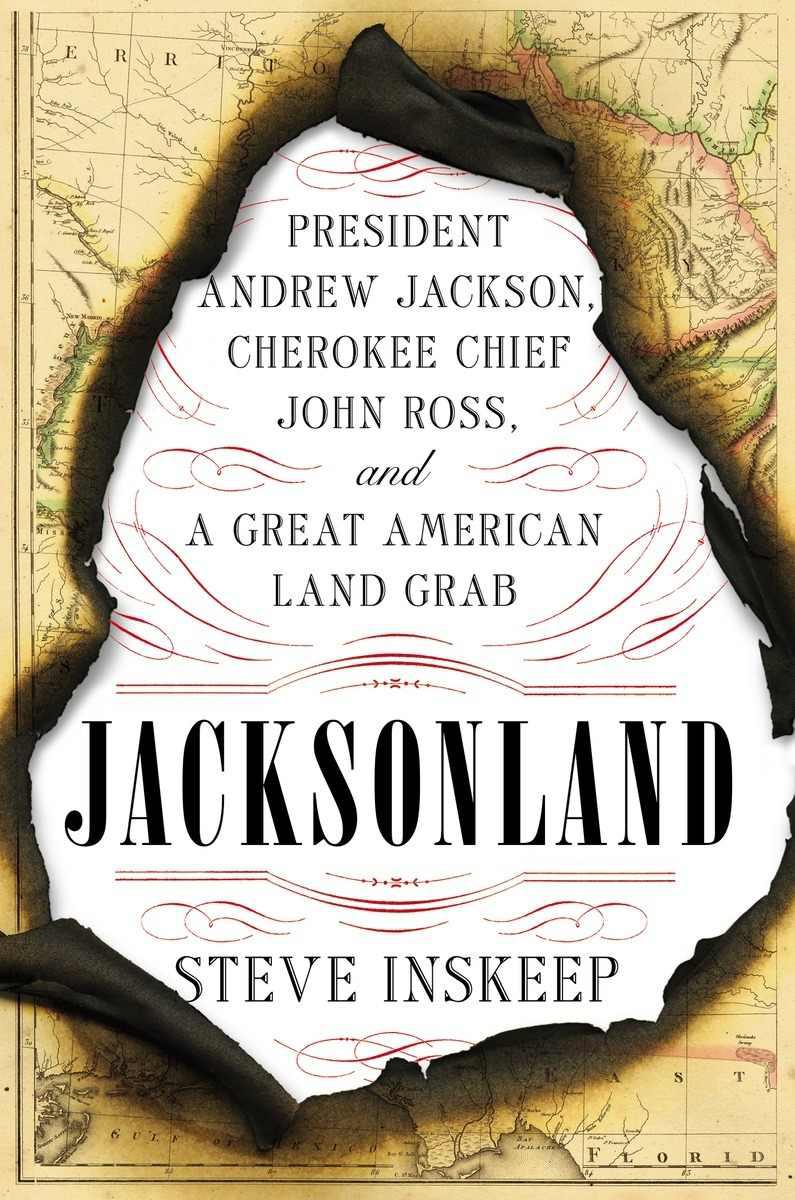
Jacksonland
President Andrew Jackson, Cherokee Chief John Ross, and a Great American Land Grab
فرمت کتاب
ebook
تاریخ انتشار
2015
Lexile Score
1180
Reading Level
8-10
نویسنده
Steve Inskeepشابک
9781101617779
کتاب های مرتبط
- اطلاعات
- نقد و بررسی
- دیدگاه کاربران
نقد و بررسی

March 23, 2015
So large has Andrew Jackson loomed in American history that an entire era is named for him, but NPR Morning Edition cohost Inskeep (Instant City) tames this outsized personality and brings fresh insight to the events leading to the Trail of Tears. Inskeep sets Jackson alongside the Cherokee leader John Ross in a nuanced dual biography that tells a compelling story of how democracy in the early-19th-century United States developed at the expense of Native American rights and land. The narrative alternates between the lives of Jackson and Ross, leading up to their final confrontation over Cherokee land in the state of Georgia, and Inskeep takes into consideration their “two different and mutually exclusive maps” of the territory. Ross believed he could secure a place for his people within the growing U.S. by emphasizing what Cherokees and whites had in common. But once gold was discovered in Georgia around 1829, this became a moot point, and Jackson signed the Indian Removal Act with a chilling ease. Dejected Cherokees abandoned Chief Ross, concluding that life across the Mississippi might be the best they could hope for. Inskeep provides a stark reminder of all that was lost. Illus.

March 15, 2015
NPR's Morning Edition co-host Inskeep (Instant City: Life and Death in Karachi, 2011) returns with a review of the forces and events leading to the expulsion of the Cherokees from their ancestral homelands. In this lively narrative aimed at general readers, the author carefully avoids demonizing or patronizing his main characters. He presents Andrew Jackson (1767-1845), the man who, "more than any other single person, was responsible for creating the region we call the Deep South," as ruthless and prejudiced but sincerely convinced that removal was in the Indians' best interests. His Cherokees were no backcountry innocents but rather "skilled political operators who played a bad hand long and well," directed by their principal chief John Ross, who had fought under Jackson in the Red Stick War. Pursuing neither rebellion nor submission, Ross counseled "civil obedience, following the law while highlighting the rights he believed Indians already had" in the vain hope that the white man's government would honor its legal and moral commitments, and holding out as long as possible for the best deal he could get for his people. However, the author ably shows how greed for land, sectional politics, heavy-handed action by the state of Georgia, and sincere moral concerns combined to bring about the forced mass migration that many Cherokees had found unthinkable. As Inskeep tells it, the story is a gradually cresting tragedy, helped along by an intransigent president but ultimately inevitable. The author knows how to hold an audience; his confident, lucid prose occasionally frolics with descriptions like that of Jackson's army in 1814, "as undisciplined as a bear rug with the bear still in it." His insights into the mechanics of land speculation on the frontier and on the effect of the Indian removal controversy on the nascent abolitionist movement are particularly noteworthy. Well-researched, -organized, and -presented, this is a sober, balanced examination of the origins of one of the more regrettable chapters in American history.

March 15, 2015
There is no shortage of monographs on the contentious relationship between President Andrew Jackson and Cherokee Chief John Ridge between the Creek War of 1813-14 and the removal of the Cherokee along the Trail of Tears. Historians have tended to focus on Jackson's need for border security or the desire of Southern planters to seize the rich agricultural lands held by the members of the Five Civilized Tribes. Although Inskeep (cohost of National Public Radio's Morning Edition; Instant City) explores those areas, he also sheds light on other notables who figured into the narrative, such as Henry Clay and Chief Justice John Marshall. Special attention is given to the covert activities of Catherine Beecher, who started a women's letter-writing campaign opposing Cherokee removal that eventually morphed into the abolitionist movement. As an investigative reporter, Inskeep delves into the economic records of Jackson, his family, and close associates; and brought to the fore that they were all scandalously acquiring vast tracts of valuable agricultural lands on native territory, sometimes before the removal treaties were negotiated. VERDICT This superb book is highly recommended for readers interested in Native American studies or Southern history. For more on Catherine Beecher and her movement, see Alisse Portnoy's Their Right To Speak: Women's Activism in the Indian and Slave Debates. [See Prepub Alert, 11/17/14.]--John R. Burch, Campbellsville Univ. Lib., KY
Copyright 2015 Library Journal, LLC Used with permission.

























دیدگاه کاربران